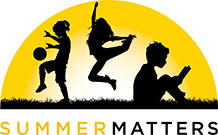Oakland Unified School District (OUSD) partners with a number of community-based organizations (CBOs) to serve more than 6,500 students. Through the Oakland Fund for Children and Youth (OFCY), the city provides funding to CBOs to serve more than 2,400 students, many in partnership with OUSD programming. Still more students are served by Oakland Parks and Recreation, city libraries, and community based organizations operating alongside this system. With such great diversity of programs, funding, and partnerships, there is a need for coordination and collaboration to ensure as many young people as possible are provided with high-quality summer learning opportunities.
